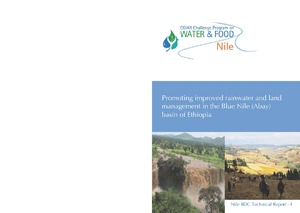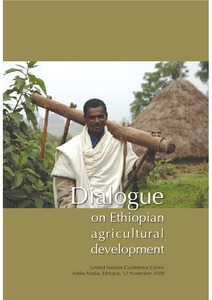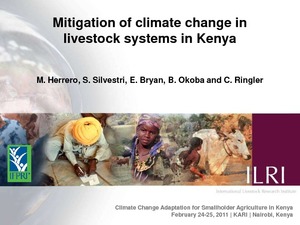Location
Vision, mission and strategy
ILRI's strategy 2013-2022 was approved in December 2012. It emerged from a wide processof consultation and engagement.
ILRI envisions... a world where all people have access to enough food and livelihood options to fulfil their potential.
ILRI’s mission is... to improve food and nutritional security and to reduce poverty in developing countries through research for efficient, safe and sustainable use of livestock—ensuring better lives through livestock.
ILRI’s three strategic objectives are:
- with partners, to develop, test, adapt and promote science-based practices that—being sustainable and scalable—achieve better lives through livestock.
- with partners,to provide compelling scientific evidence in ways that persuade decision-makers—from farms to boardrooms and parliaments—that smarter policies and bigger livestock investments can deliver significant socio-economic, health and environmental dividends to both poor nations and households.
- with partners,to increase capacity among ILRI’s key stakeholders to make better use of livestock science and investments for better lives through livestock.
This is ILRI’s second ten-year strategy. It incorporates a number of changes, many based on learning from the previous strategy (2000–2010, initially produced in 2000 and modified in 2002), an interim strategy (2011–2012) and an assessment of the external and internal environments in which the institute operates.
Members:
Resources
Displaying 656 - 660 of 1152Promoting improved rainwater and land management in the Blue Nile (Abay) basin of Ethiopia
This paper is an attempt to draw together and synthesise as much of the existing documentation as is possible within a limited time period, analyse it systematically, and draw out the main conclusions, lessons learned, and gaps in knowledge. The report tries to identify which RWM innovations have worked when, where and why; what did not work out very well, and why; and what lessons can be extracted from past experience to guide CPWF research in the Nile over the next 4–5 years.
An International Terminology for Grazing Lands and Grazing Animals
In 1991, Terminology for Grazing Lands and Grazing Animals was published with the objective of ‘developing a consensus of clear definitions of terms used in the grazing of animals.’ This first effort involved primarily organizations and agencies within the USA but included representation from New Zealand and Australia. It was the intent from the beginning to expand this to a truly international effort at a later date.
Dialogue on Ethiopian Agricultural Development: Report of a conference, Addis Ababa, Ethiopia, 12 November 2009
The dialogue on Ethiopian Agricultural Development was organized by the Ministry of
Agriculture and Rural Development (MoARD) of the Federal Democratic Republic of Ethiopia
and the International Livestock Research Institute (ILRI) to honour Professor Gebisa Ejeta,
winner of the 2009 World Food Prize. The dialogue was held on 12 November 2009 at the
United Nations Conference Centre. It was opened by H.E. Ato Girma Woldegiorgis, President
of the Federal Democratic Republic of Ethiopia.






